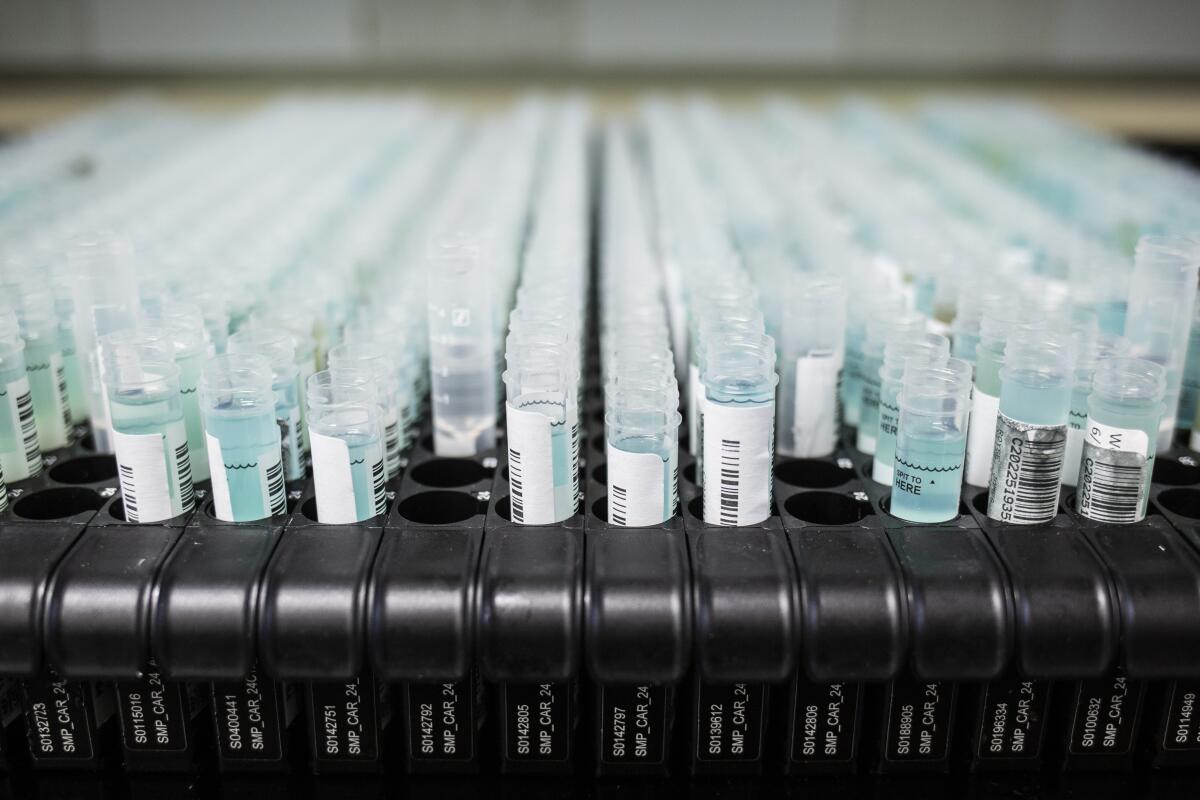Trump administration restarts disease research after backlash

- Share via
After sharp criticism for ending an infectious disease research program, the Trump administration is refocusing efforts on the study of such diseases like the novel coronavirus. The move partially reverses previous administration decisions to end funding for outbreak prevention efforts.
The new initiative within the National Institutes of Health, called the Centers for Research in Emerging Infectious Diseases, follows months of political backlash after the administration discontinued the decade-old PREDICT program, a $200-million program with a similar aim, last October — just before the outbreak began.
The new department, announced last week, will receive about $82 million over the next five years to investigate “how and where viruses and other pathogens emerge from wildlife and spill over to cause disease in people,” according to a statement from the NIH.
The Times first reported on the closure of the PREDICT program in April, triggering criticism from Democratic presidential candidate Joe Biden, who has promised to restore the program if he is elected. The Trump administration has since also revived the efforts through a $100-million successor program, called Stop Spillover, which is set to begin later this fall.
Among the first round of the NIH research grant recipients is EcoHealth Alliance, a global nonprofit that played a central role in PREDICT.
That program will “leverage the data collected and knowledge gained by PREDICT” to reduce the risk of pathogens like the coronavirus from passing from animals to humans, according to an announcement by the U.S. Agency for International Development.
Over the course of a decade, the PREDICT program identified 1,200 different viruses that had the potential to achieve global spread, including more than 160 novel coronaviruses. It also supported researchers in laboratories around the world, including one in Wuhan, China.
Last Thursday, Democratic vice presidential candidate Kamala Harris highlighted the Trump administration’s decision to discontinue the PREDICT program, alongside other global health initiatives within the National Security Council and elsewhere. The Biden campaign has vowed to boost U.S. funding to the World Health Organization and grow the presence of American disease investigators in China.
PREDICT’s former director, Dr. Dennis Carroll, has advised Biden’s campaign on international health issues.
The new emerging disease center at the NIH, meanwhile, is “a great step in the right direction for preventing the next COVID,” according to Dr. Peter Daszak, president of EcoHealth Alliance and the head investigator for the Emerging Infectious Diseases Southeast Asia Research Collaboration Hub, EID-SEARCH, which will receive $7.5 million from the NIH.
“As we’ve seen, an outbreak anywhere can easily become a pandemic everywhere,” he said. “Focusing research on emerging disease hotspots around the world protects every one of us.”







